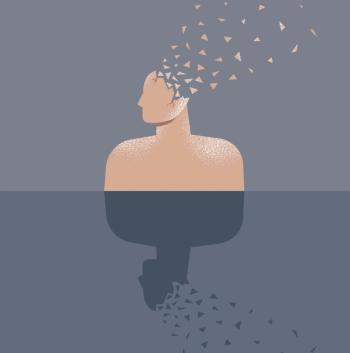
- Psychiatric Times Vol 36, Issue 7
- Volume 36
- Issue 7
Helping Complex Patients
The National Alliance on Mental Illness (NAMI) is a one-of-a-kind nonprofit that is here for your patients and their families, no matter where they are.
NAMI as a Resource
The National Alliance on Mental Illness (NAMI) is a one-of-a-kind nonprofit that is here for your patients and their families, no matter where they are. As the largest grassroots organization in America for people experiencing mental illness, NAMI has a presence in every state, with hundreds of community affiliates nationwide.
NAMI was founded in 1979 by mothers who felt their children experiencing schizophrenia were not receiving proper care and support from the mental health care system. What started as a small, determined group of families gathered around a kitchen table has blossomed in the nation’s leading voice on mental health. Since its founding, NAMI has never stopped in its quest for better care, services, and research. This makes it a natural ally for any clinician seeking better outcomes for his or her patients.
Peer connection
Isolation is a common problem for people who have mental illness and support groups offer a safe space for like-minded peers to connect. Support groups are also a powerful way for your patients to get out, meet others, and discover different ways of approaching their challenges. NAMI has a variety of support groups that connect people with shared experiences; our members have “been there” and find a sense of purpose in helping individuals who are struggling.
In support groups like NAMI Connection and NAMI Family Support, your patients might also find resources for better housing, supported employment/education, or a recovery learning center they can join. These weekly meetings might also lead to new friendships, which is itself an important outcome.
“So, what was NAMI, I wondered. I called and found out that there was a support group meeting near me in a few days, and that I was welcome to attend. I thought, ‘Why not go? What have I got to lose?’ Actually . . . I knew exactly what I had to lose if this didn’t work. So, I got up my courage, drove to the meeting location and walked into my first NAMI Connection meeting. It turned out to be the start of a new life for me.”
Fletcher M, South Carolina
Education for families
Families often find the mental health system difficult to navigate because mental illness and mental health care can be challenging to understand. Fortunately, there is a NAMI program that has been proven to be clinically effective to facilitate a better understanding of mental illness and mental health care.1 It’s called NAMI Family-to-Family.
NAMI Family-to-Family is a 12-session course for families, significant others, and friends of people with mental illness. The course is designed to provide a better understanding of the different conditions, increase coping skills and empowering participants to become advocates for their loved ones, if needed. Similarly, NAMI Basics is a 6-session course for parents and other family members who provide care for children and youth (aged 22 years or younger) who experience mental health symptoms.
“Every time I felt defeated and wondered if I should give up, the coping and problem-solving skills I learned in NAMI Basics came to my aid. Like many others, NAMI Basics saved my family. It gave us the tools to keep going and keep fighting for my son-his care, his happiness and his life.”
Anita H, North Carolina
NAMI Basics will be available online in late 2019. With this program, it won’t matter if you are referring a patient who lives in a rural community miles away from the nearest NAMI affiliate, or if you are referring a working parent of three with limited time to dedicate to an in-person class-soon, everyone will be able to access NAMI Basics on their own schedule.
Information and support
The NAMI National HelpLine fields thousands of calls a year, connecting concerned callers with mental health resources. NAMI HelpLine staff and volunteers are prepared to answer questions on a variety of issues including symptoms of mental illness, treatment options, local support groups and services, education programs, helping family members get treatment, programs to help find jobs, and much more.
“Almost every call ends with the caller sharing, ‘I can’t thank you enough. Before I called you, I didn’t know where to start. You’ve helped me so much.’ I cannot fully describe how good it feels to be able to speak with a caller-who at the beginning of a call feels helpless and lost-and help empower them with a sense of dignity, calm, and hope by the end of the call.”
Quinn Anderson, NAMI HelpLine Manager
Your patients can also visit
NAMI also runs a series of educational webinars on topics of importance to our members. These webinars, called Ask the Expert, invite America’s leading health care professionals and researchers to cover topics such as the efficacy of ketamine, how to take care of one’s physical health while on atypical antipsychotics, and cognitive behavioral therapy for psychosis skills. Anyone can attend these webinars.
Advocacy and empowerment
Many of the best outcomes in terms of legislation and policy are based on first-person testimony. That’s because few things are more powerful than speaking your truth. NAMI can help guide your patients and their families in effectively fighting for better services and care, if they want to do so.
NAMI Smarts for Advocacy is a hands-on advocacy training program that helps people with mental illness, and their families transform their lived experience into skillful grassroots advocacy.
This program is designed to develop the following skills:
• Telling a compelling story that makes an “ask” in 90 seconds
• Writing an effective email
• Making an impactful phone call
• Orchestrating a successful meeting with an elected official
“Like you, I am pained by our nation’s mental health crisis and how it affects the people I work with and serve. But I take comfort in knowing that mental health advocates across the country work tirelessly to advance research, mitigate the tragic consequences that stem from lack of services and promote programs that offer promise and hope to future generations. Together, we can create a brighter tomorrow.”
Mary Giliberti, former CEO of NAMI
Every advocacy movement needs boots on the group; NAMIWalks offer an avenue to connect with the mental health community while raising awareness and funds. More than 5000 people participated in the Boston NAMIWalks last year and the energy there was powerful. It is hard to feel alone with 5000 people around you, standing up for the same things you stand for.
Assistance for mental health professionals
NAMI is a participant of the SAMSHA/APA Clinical Support System for Serious Mental Illness project, otherwise known as SMI Adviser. This project offers education, data, resources, and consultations to clinicians (physicians, nurses, recovery specialists, peer-to-peer specialists, and others), so they can more effectively provide evidence-based care to people with serious mental illness. In collaboration with the APA, NMAI will be creating resources-fact sheets, webinars, podcasts, videos, and more-on topics of mutual interest for providers like you, as well as your patients and their families.
This project reaches deep within the underserved, misunderstood serious mental illness community to provide education and support that NAMI could never deliver on its own. We’re thankful to the APA and SAMHSA for including us in this vital and significant work, and we welcome you to keep up with our contributions at
What you can do
As a psychiatrist, you have a lot to offer the mental health community, as we all have a shared mission: patient health and wellness. So, start by connecting with and becoming a NAMI member at your local NAMI affiliate. See how you can get involved with NAMI activities. Maybe you could speak at a state convention. Whatever your involvement, NAMI will cherish your time and expertise.
NAMI would also appreciate your help combatting stigma in the medical community, which unfortunately remains alive and well. NAMI In Our Own Voice (IOOV) is a transformational presentation that helps people speak about their recovery journey. Research shows that contact with people experiencing mental illness helps reduce stigma, prejudice, and discrimination. If you think your hospital, medical school, or workplace might benefit from IOOV, contact your local NAMI affiliate.
“Throughout the city of New Orleans, I’ve had people come up to me and call me the ‘NAMI Man,’ telling me that I helped them better understand mental illness through my IOOV presentations. My experience with schizoaffective disorder helped me educate hundreds of people at local police departments, churches, synagogues, and university psychology classes.”
Jessie S, Louisiana
You can also bring mental health awareness to your local school system. NAMI Ending the Silence is a presentation designed for middle and high school students, school staff, and the parents or guardians of middle- or high-school–aged youth. Audiences learn about the signs and symptoms of mental health conditions, how to recognize early warning signs and the importance of acknowledging those warning signs.
Early intervention is essential to improving long-term outcomes for young people with serious mental illness-being exposed to this kind of information early is indispensable. NAMI is devoted to improving the lives of people with serious mental illness and those who love them.
Disclosures:
Dr Duckworth is Medical Director, The National Alliance on Mental Illness, Washington, DC; Ms Allen is Senior Content Strategist, The National Alliance on Mental Illness, Washington, DC. The authors report no conflicts of interest concerning the subject matter of this article.
References:
1. Dixon LB, Lucksted A, Medoff DR, et al. Outcomes of a randomized study of a peer-taught Family-to-Family Education Program for mental illness. Psychiatric Services. 2011;62:591-597.
Articles in this issue
over 6 years ago
Neuropsychiatry of Catatonia: Clinical Implicationsover 6 years ago
Introduction: Exploring the Foundations of Psychiatryover 6 years ago
Diagnostic Errors in Neuropsychiatryover 6 years ago
Research Sheds Light on Two Types of Treatment for ADHDover 6 years ago
Things Are Seldom What They Seemover 6 years ago
You’re a Psychiatrist . . .Newsletter
Receive trusted psychiatric news, expert analysis, and clinical insights — subscribe today to support your practice and your patients.







